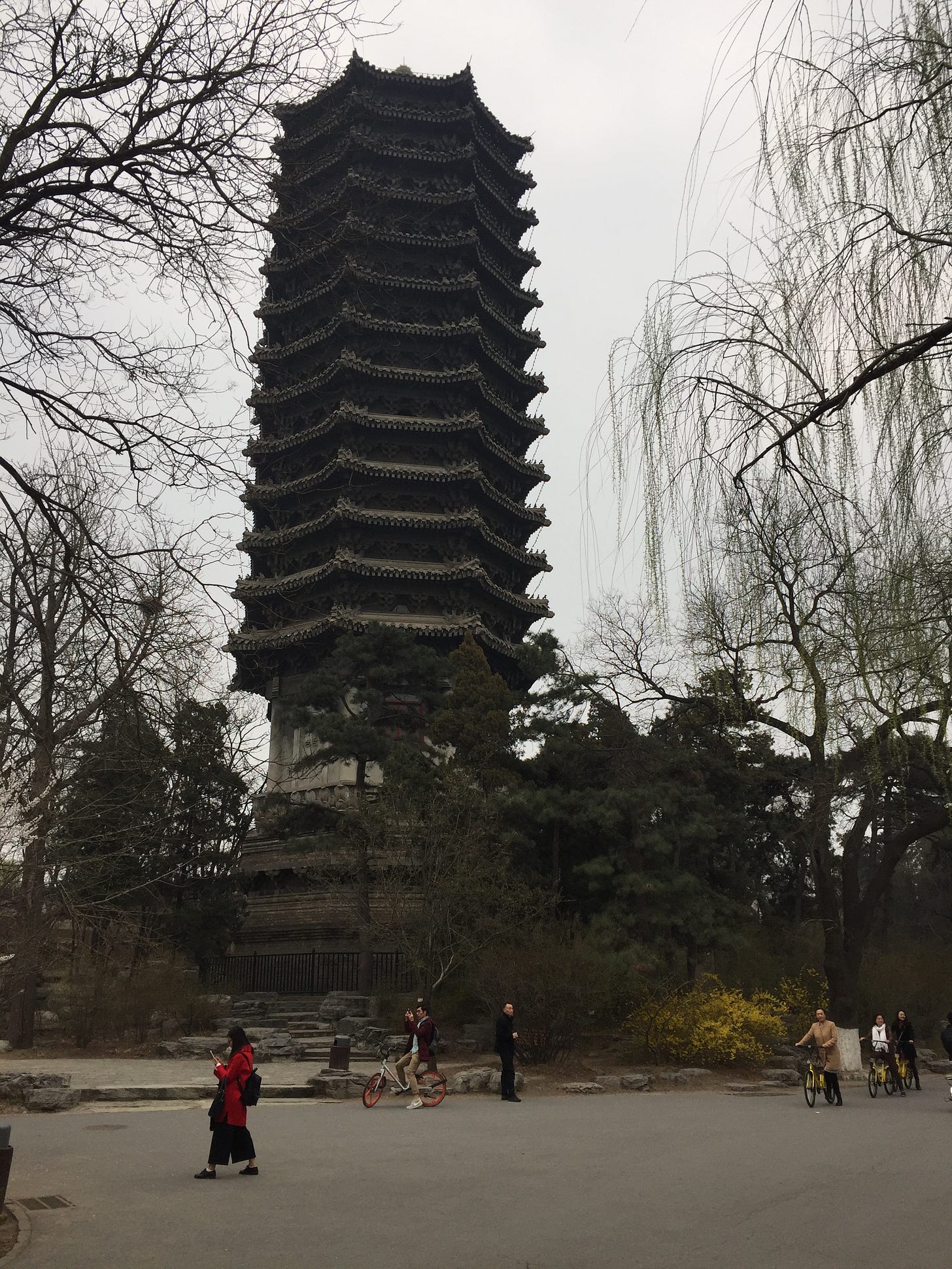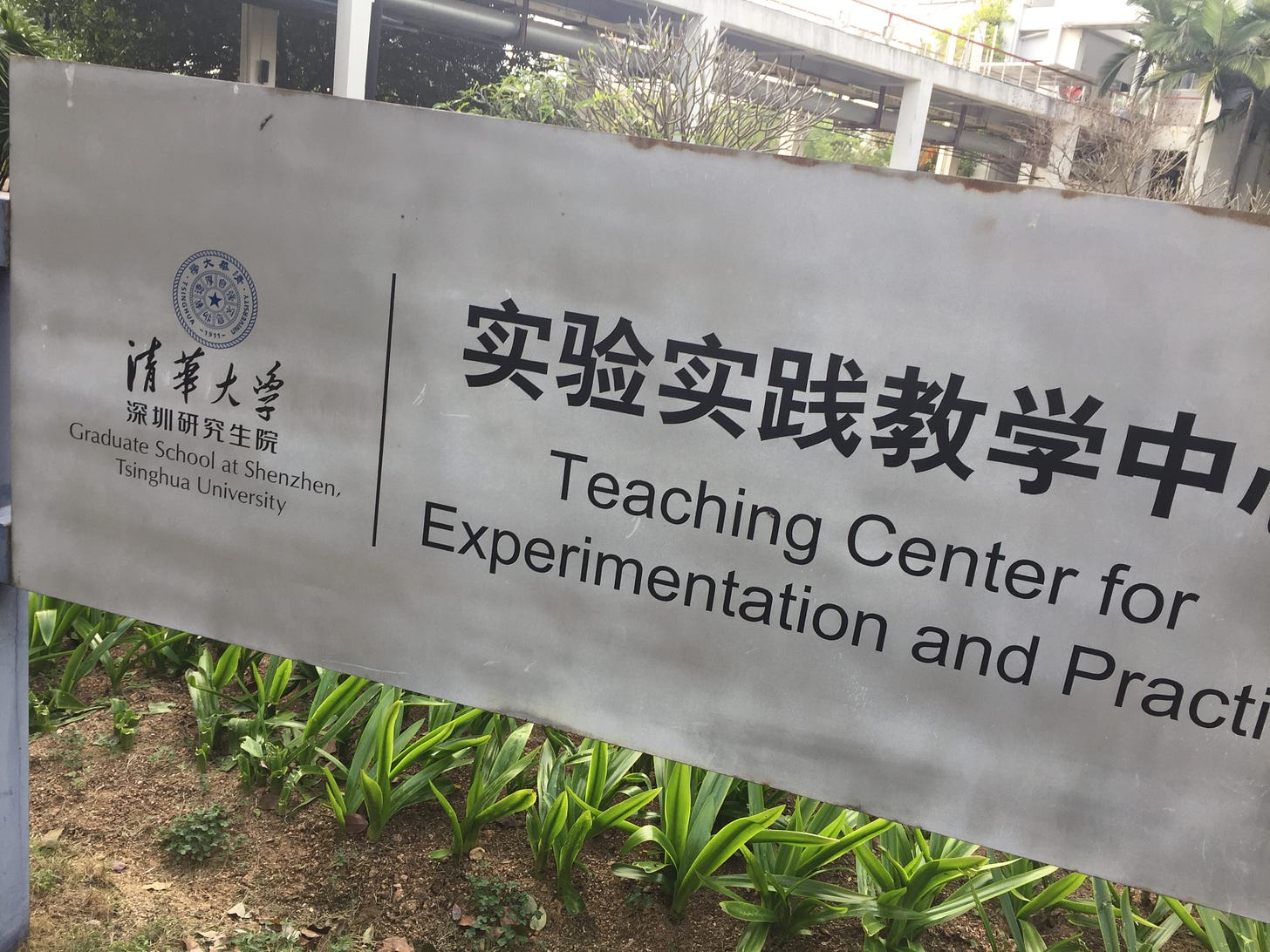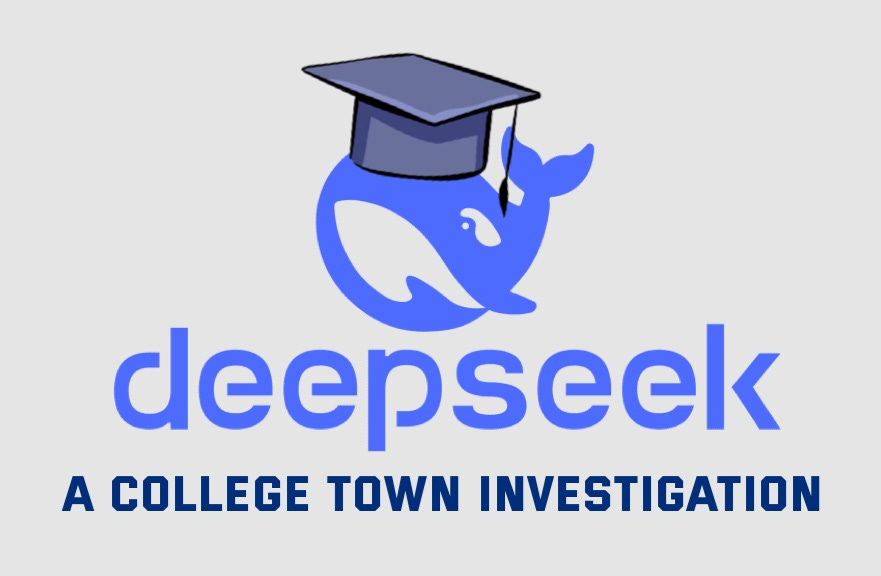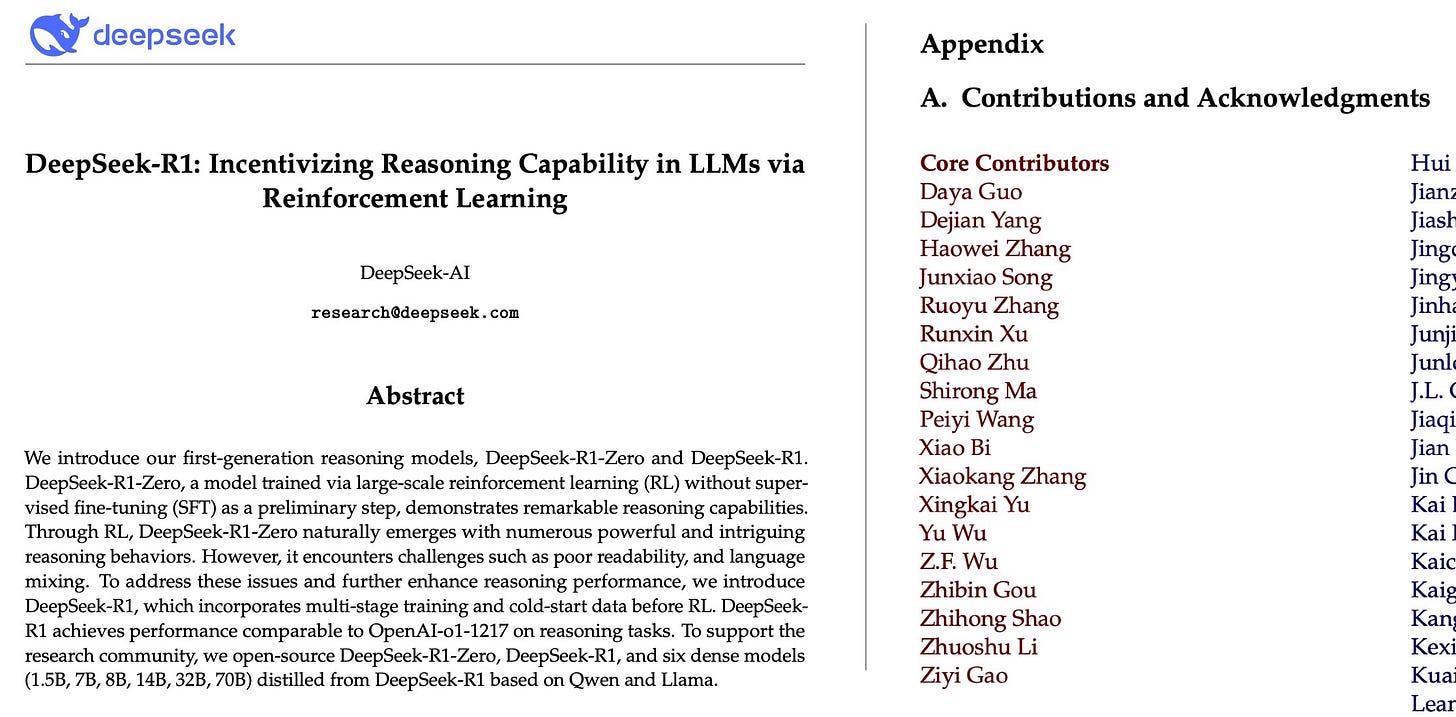Where Did the DeepSeek Team Go to University? Not in the US.
DeepSeek shows that Chinese universities have caught up to their Western counterparts in the AI space.
The news that DeepSeek released an AI large language model (LLM) that rivaled OpenAI shocked the world. The small Chinese firm reportedly achieved this feat at a fraction of the price done by the American counterpart, undercutting the business model with a comparable model that is cheaper and open source.
While there have been quibbles about how exactly the DeepSeek team achieved this breakthrough, I was interested in the people behind the model, particularly where they were educated. One claim that I kept hearing was that they were all educated in China, without returnees from American universities.
It is no secret that Liang Wenfeng, the founder and CEO of DeepSeek, was a graduate of Zhejiang University, receiving both his bachelor's and master's degrees in Engineering from the elite Chinese institution. In building his company, quoted Liang in an interview:
The team behind the V2 model doesn’t include anyone returning to China from overseas — they are all local. The top 50 experts might not be in China, but perhaps we can train such talents ourselves.
This lack of returnees, or so-called “Sea Turtles” (hǎiguī, 海龟), is fascinating because the trend for years was Chinese students studying in the US and bringing back home innovations. There has been a conception that Chinese universities could not match the US (or other world leaders) in advanced research. The so-called glass ceiling meant that they could achieve a good ranking but could not be among the very elite.
DeekSeek’s success seems to push back against these narratives. I wanted to explore more to understand the higher education component to the rise of this AI company.
Educational Backgrounds of the DeepSeek Team
DeekSeek does not have a kind of open listing of their employees. Instead, the scientific papers that underlie the AI models have been released on the public research archive arXiv (also here and here). All of the researchers who worked on the paper can be found listed, totaling over 200 names across the various papers.
I decided to focus on the Core Contributors listed on the papers, searching for their bios and online activity. A lot of them have GitHub, LinkedIn, Google Scholar (most have authored serious academic research), personal sites, or even Twitter accounts. I have listed their educational affiliations below, including only their public professional research profiles.
DeepSeek-R1 Core Contributors - Education
Daya Guo - Undergrad, Sun Yat-sen University - PhD Sun Yat-sen University/ Joint Program with Microsoft Research Asia.
Dejian Yang - Education information unavailable - affiliated with State Key Lab of Software Development Environment, Beihang University.
Haowei Zhang - Undergrad, Heilongjiang Institute of Engineering - MS, Wuhan University - PhD Wuhan University.
Junxiao Song - Undergrad, Zhejiang University - PhD, Hong Kong University of Science and Technology.
Ruoyu Zhang - Undergrad, Yuanpei College, Peking University - MS, Peking University.
Runxin Xu - Undergrad, Shanghai Jiao Tong University - MA, Peking University.
Qihao Zhu - PhD, Peking University.
Shirong Ma - Education information unavailable.
Peiyi Wang - Tianjin University (degree unclear) - PhD, Peking University
Xiao Bi - Could not find education.
Xiaokang Zhang - Could not find education.
Xingkai Yu - Undergrad, Nanjing University - MS, Nanjing University.
Yu Wu - Undergrad, Beihang University - PhD, Beihang University.
Z.F. Wu - Could not find education.
Zhibin Gou - Undergrad, Beijing University of Posts and Telecommunications - MS, Tsinghua University.
Zhihong Shao - Undergrad, Beihang University - PhD, Tsinghua University
Zhuoshu Li - MS, Zhejiang University.
Ziyi Gao - Could not find education.
DeepSeek-R1 Contributors Who Departed DeepSeek - Education
Fuli Luo - Undergrad, Beijing Normal University - MS, Peking University
Kai Hu - Education information unavailable - affiliated with the University of Science and Technology of China.
Wenqin Yu - Education information unavailable.
Zijun Liu - PhD, Tsinghua University - Visiting doctoral student at Stanford University.
Yiyang Ma - Undergrad, Peking University - Grad, Peking University.
Ruiqi Ge - Education information unavailable.
DeepSeek-VL2 - Education
Zhiyu Wu - Undergrad, Peking University - MS, Peking University.
Xiaokang Chen - Undergrad, Peking University - PhD Peking University.
Zizheng Pan - Undergrad, Harbin Institute of Technology - PhD, Monash University.
Xingchao Liu - Undergrad, Beihang University - PhD, University of Texas at Austin.
Wen Liu - Undergrad, Northwestern Polytechnical University - PhD, Shanghai Tech University
Chong Ruan - MS, Peking University.
Janus-Pro - Education
Zhenda Xie - Undergrad, University of Science and Technology of China - PhD, Tsinghua University (research intern Microsoft Research Asia )
Analysis of DeepSeek's Educational Backgrounds
The reports about the DeekSeek team having no returnees working on these projects seem to mostly be true, albeit with some caveats. Indeed, all of the DeepSeek-R1 Core Contributors who I could find were educated in China from their undergrad days to graduate school. The same is true of the contributor on that paper who left the team. Although, one member was a visiting student at Stanford University.
There were some abroad connections for the DeepSeek-VL2 paper authors. Both Zizheng Pan and Xingchao Liu had overseas education, one a Monash in Australia and UT Austin in the US, respectively. Zizheng Pan also appears to have also been an intern at NVIDIA.
Zhiding Yu, senior research scientist at NVIDIA Research, praised Pan for his time at the company. “Zizheng’s case is a very typical example of what I have witnessed in recent years. Many of our best talents come from China, and these talents don’t have to succeed only in a US company. Instead, we learn a lot from them,” he said on X.
Finally, for the Janus-Pro paper, of the authors not already listed in the other papers, Zhenda Xie was also educated fully in China. He also had an internship at Microsoft Research Asia, which does seem to have a strong connection to DeepSeek. Aside from these couple of authors, there is little connection between the DeepSeek researchers and US higher education.
How About DeekSeek Team’s Grad School Advisors?
I found that the overwhelming majority of the DeepSeek team was indeed trained in China, which led me to wonder about their professors at Chinese universities. I hypothesized that they had had training in the US or the West.
From the bios that I found of the DeepSeek team, a few of them listed who they were advised by or worked with while in grad school. From this search, I found that my guess about the professors’ training was mostly wrong.
Peking University dominated the educational list for the DeepSeek team, and the advisors were no different. Dr. Baobao Chang, Dr. Zhifang Sui, and Dr. Yingfei Xiong are all faculty at the School of Computer Science, Peking University. Dr. Chang is an associate professor who obtained a bachelor's from Shanxi University in 1992 and a PhD from Peking University in 1999. Likewise, Professor Sui graduated from Shandong University in 1992 and did her PhD at Peking University, finishing in 1998.

Dr. Xiong, Associate Professor, is the only one of the three with an education abroad. He completed his undergrad at the University of Electronic Science and Technology of China, but did his PhD in Japan at the University of Tokyo, following it up at the University of Waterloo in Canada.
Tsinghua University, no surprise, also had fingerprints throughout the DeepSeek team. None of the faculty advisors from Tsinghua had educational degrees from abroad—Dr. Yujiu Yan, Dr. Minlie Huang, and Dr. Jinshi Cui. Dr. Yan did his undergrad at the China University of Mining and Technology and later earned a PhD from the Chinese Academy of Sciences in 2008. Both Dr. Huang and Dr. Sui did their bachelor’s and doctoral work at Tsinghua.
Another connection for Tsinghua came through Baining Guo, who is an adjunct for Computer Science at the university but is professionally a Distinguished Scientist with Microsoft Research. He completed his undergrad at Peking University before his graduate work (MS and PhD) at Cornell University. He was also named as a Royal Society of Canada (RSC) fellow in 2024.
The advisor connection to DeepSeek continues for Microsoft with Dr. Han Hu, Dr. Yue Cao, and Dr. Zheng Zhang. Dr. Hu is a principal researcher and research manager at Microsoft Research Asia (MSRA). He did his undergrad and PhD at Tsinghua, along with a visiting studentship at the University of Pennsylvania. Dr. Cao, was formerly a senior researcher at Microsoft Research Asia, who also did his degrees at Tsinghua. Dr. Zhang, a researcher at MSRA, completed his graduate work at Huazhong University of Science and Technology.
Finally, for the Chinese institutions, Shenghua Gao was formally a faculty member at ShanghaiTech University, now an Associate Professor Associate Professor at The University of Hong Kong. He earned is undergrad degree at the University of Science and Technology of China and PhD from Nanyang Technological University in Singapore.
There were two advisors I found listed for professors from American universities. Dr. Qiang Liu is an Associate Professor of Computer Science University of Texas at Austin. He earned his BS from Beihang University and a PhD from the University of California, Irvine. Similarly, Dr. Hao Su is an Associate Professor at the University of California, San Diego. He also did his undergrad at Beihang, along with a PhD there, and a second PhD at Stanford University.
Chinese Talent and the US
When looking at the educational background of the DeepSeek team, elite universities dominate the list, just not elite American universities. Only a few of the members had degrees from the US, along with a few others from other locales. Mostly, the Chinese researchers were trained in China at the country’s top institutions.

Finding Peking and Tsinghua in this would be no different than finding engineers at an American-based start-up filled with graduates from Stanford and Harvard. These elite Chinese institutions drive the company, different from firms in the past that may have focused on returnees. Dylan Patel and
on the nature of their recruitment:DeepSeek regularly runs recruitment events at top universities like PKU and Zhejiang, where many of the staff graduated from. Roles are not necessarily pre-defined and hires are given flexibility… They are extremely competitive, and allegedly offer salaries of over $1.3 million dollars USD for promising candidates… They have ~150 employees, but are growing rapidly.
The most surprising thing is that even the professors who taught the DeepSeek team members were also mostly fully educated in China. It does seem like, even with questions surrounding the model development, this case does show that Chinese universities have broken through the so-called glass ceiling. They are now producing some of the best talent in the world on the bleeding edge of artificial intelligence without the US.
There are now some Americans raising the alarm bells over slipping in the AI race. “Let’s steal their best engineers… we’d be better off if the engineers behind that were working here in the US,” said Melanie Hart of the Atlantic Council. Given that these students are no longer trained in the US and can get competitive salaries back home, recruiting the top talent from China will be more challenging today.
Furthermore, there are growing concerns about the Chinese targeted as national security threats. These concerns have been bubbling for years, which I covered in the Journal of International Students. Likewise, there have already been tensions regarding the Chinese government recruiting back their so-called Sea Turtles through initiatives like the Thousand Talents Plan, which I have also analyzed in the past.
Most of the universities I found were expected. There were three of the so-called Seven Sons of National Defense universities present: Beihang University, Harbin Institute of Technology, and Northwestern Polytechnical University. These have concerned Western governments due to the universities’ connections to the Chinese military. In 2020, the US government put restrictions on students from these universities coming to American universities.
The DeepSeek development has only created more heat in this space. Some of the connections to Microsoft or other US entities might also bring more apprehension. Scholars have been discussing that these anxieties are only growing in the current environment. Dr. Siyuan Wang, Associate Professor at Yale University, recently posted his concerns on X:
My Chinese American colleagues in Texas public universities such as the whole U Texas including MD Anderson are now required to report family visit trip to China ahead of trip, and provide a post-travel briefing detailing the trip. Land of the free (your experience may differ).
In general, all of this information is available online. Most of the team members had a fairly robust online footprint, posting about AI or other happenings on social media. I also noticed several had anime or cartoon profile pictures. These actions do not screen anything covert to me. It seems very much like a group of young, highly intelligent, overly educated, and a little nerd-ish.
In the end, there will probably be a widening rift between the US and China. In the past, the US could count on the best and brightest still coming to the universities here because we had the best educational opportunities. DeepSeek shows that this is not necessarily the case anymore. The team is full of very young, incredibly smart, and highly driven Chinese university graduates who do not need the United States.







